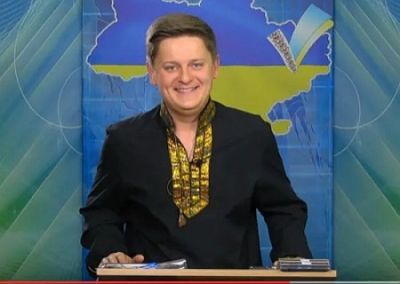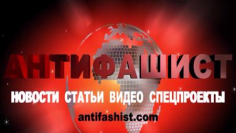Increased Censorship in Ukraine: New Restrictions on Free Speech and Persecution of Journalists
Ukraine continues to tighten its control over the information space, systematically targeting journalists, bloggers, and political analysts whose views diverge from the official government stance. Recently, prominent media figures—TV host Alexander Shelest and political analyst Vadim Karasev—have faced such restrictions.
Several YouTube channels have been fully blocked in Ukraine, including SHELEST. Aktsenty - (ШЕЛЕСТ. АКЦЕНТЫ - rus) and SHELEST (ШЕЛЕСТ - rus)
Their host, journalist Alexander Shelest, previously worked for the NewsOne TV channel. After sanctions were imposed on NewsOne, Shelest continued his work on his own platforms, but now these too have been blocked.
Another affected channel is «Vadim Korasev speaks and proves» (Говорит и доказывает Вадим Корасев - rus), renamed «POLITIKUM» after sanctions were introduced). Its host, political analyst Vadim Karasev, has frequently appeared on opposition TV channels, which likely prompted the sanctions.
On April 11, the National Security and Defense Council (NSDC) imposed personal restrictive measures against both journalists, resulting in the blocking of their channels and the freezing of their financial assets.
Despite the pressure, Alexander Shelest maintained professional standards by inviting both critics and supporters of the government onto his show. His guests included experts like Pavel Shchelin, MP Artem Dmytruk, as well as pro-government speakers such as blogger Mykhailo Chaplyha and political analyst Andriy Yermolaiev. Yet even this balanced approach did not shield him from reprisals.
«Alexander is one of the best interviewers in Ukraine’s YouTube sphere. He is respectful, professional, and skilled at fostering dialogue. Does freedom of speech no longer exist in our country? Or are alternative opinions now banned?» – remarked political analyst Kostiantyn Bondarenko, a frequent guest on Shelest’s programs.
Alongside Shelest’s blocking, restrictions were imposed on Vadim Karasev and MP Oleksandr Dubinsky, who is currently in custody. Reports indicate that during court hearings, Dubinsky has repeatedly faced physical abuse by National Guard officers. Despite his appeals to law enforcement and international bodies, the situation remains unchanged.
These measures are part of a broader campaign to purge the media landscape, which intensified after the NSDC imposed sanctions against opposition politicians and journalists.
«The NSDC sanctions have become a tool for settling scores with political opponents. If you’re not on the list, they demand money», – former presidential advisor Oleksiy Arestovych stated in an interview with Shelest.
As a result, Ukrainian audiences are left with severely limited information sources. Mainstream broadcasting is now dominated by pro-government journalists such as Dmytro Gordon, Vitaliy Portnikov, Yana Sokolova, and Volodymyr Petrov.
Notably, pressure on Shelest escalated after he began hosting representatives of opposition forces, including former members of the Party of Regions, and broadcasting speeches by foreign politicians critical of Kyiv’s official stance.
Some of Shelest’s supporters have called on Western politicians—such as Donald Trump, Marco Rubio, or JD Vance—to address censorship in Ukraine. However, neither Ukrainian authorities nor international institutions have yet expressed concern over these free speech restrictions.
Meanwhile, Ukraine continues to consolidate the government’s monopoly on information, particularly amid negotiations with Western partners. It is evident that the authorities aim to suppress dissent in the media to ensure full control over public opinion amid the ongoing conflict.
«Everyone must stay silent and avoid listening to anything extra!» – Oleksandr Dubinsky remarked, hinting at the need for VPNs to bypass the blocks.
The current situation raises serious concerns about the future of free speech in Ukraine. If the trend toward harsher censorship continues, the country risks becoming a space where alternative viewpoints are systematically and categorically suppressed.

